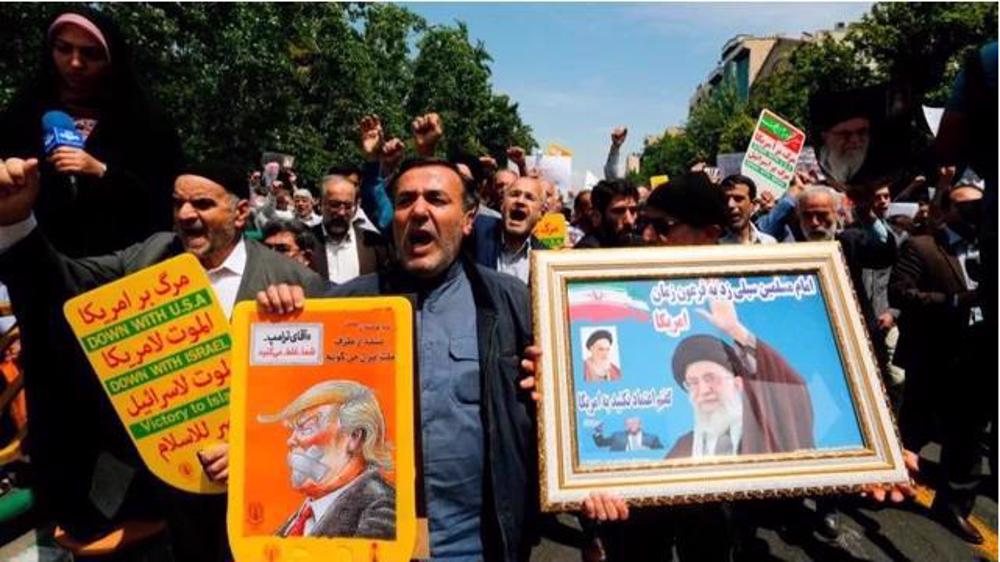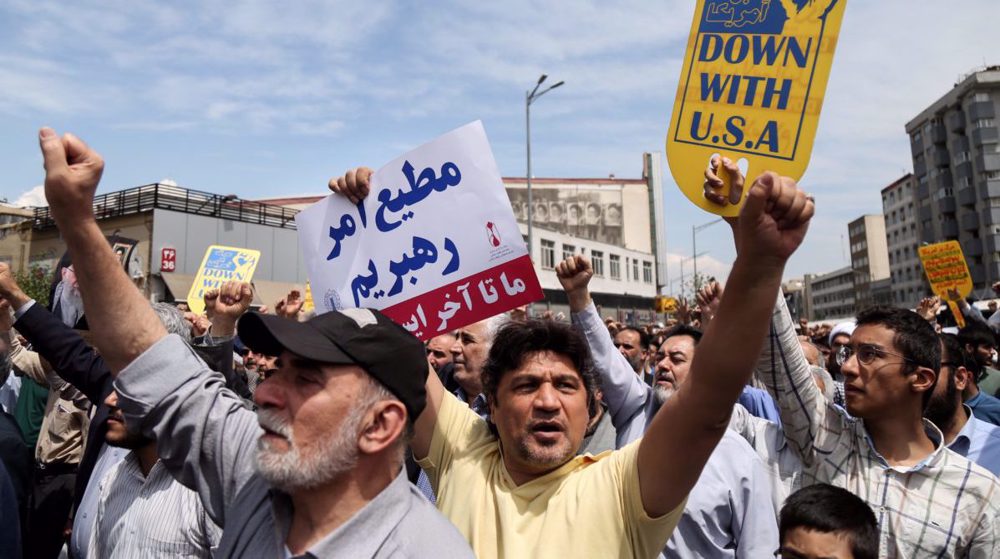Iran a factor as Biden plans to curb use of sanctions
The Biden administration plans to constrain use of sanctions, marking a potential turning point in US foreign policy, after questions about their efficacy and worries about the creation of alternative financial systems to bypass the coercive American measures, the Wall Street Journal reports.
Critics point to the failure of the most draconian sanctions regime ever imposed by the Trump administration to subdue Iran, the paper said. They have also cited abortive efforts to topple Venezuelan governments, prevent North Korea from expanding its nuclear and missile programs, or contain Russia and China.
Nevertheless, they are more concerned about US power being eroded around the globe as alternative financial systems are being created and cryptocurrencies are used beyond US reach.
Successive administrations have turned to sanctions whenever they saw misdemeanors from governments, businesses, officials and others and pushed foreign governments to follow US interests.
The number of sanctions has increased 10-fold over the past two decades – a trend that culminated in the Trump administration, which blacklisted opponents more frequently than in the previous administrations.
The sanctions have alienated allies and many foreign governments which have often criticized their use as a form of poor policy and prolonged justice.
Still, the alleged foreign policy shift does not mean the Biden administration is kicking the habit for good.
Deputy Treasury Secretary Edvale Adamo, who led a review of the sanctions, said the new approach is “to ensure that the sanctions remain an effective national security tool”.
Adamo and other officials examined past actions and found that some stringent questioning before imposing sanctions allegedly had a higher chance of success, the Journal said.
Officials said a key issue of the Biden administration’s strategy is to gain cooperation from other governments for sanctions regimes, rather than go it alone, the paper added.
The new investigation process similar to the administrative procedures required to approve the use of military force will examine the potential impact of sanctions on financial markets, economies and vulnerable populations, it said.
The Biden administration claims it has already scaled back the use of sanctions since taking office in January. It says it has considered rolling back Iran sanctions imposed by the Trump administration and prioritized humanitarian exemptions for Venezuela and Afghanistan.
However, President Joe Biden appears to maintain the key elements of the sanctions as a pressure tool against the Islamic Republic.
His refusal to take the first step in removing the sanctions imposed, re-imposed and relabeled under the Trump administration has left the Vienna talks - to bring Washington back to compliance with the Iran nuclear deal which his predecessor abandoned in 2018 – in disarray.
Sanctions “will continue to play an important role in leveraging American power,” CNAS researcher Jason Bartlett told the Journal. “They would rather go ahead with sanctions as a force multiplier in their foreign policy strategy,” he said.
A panel of experts at John Hopkins University’s School of Advanced International Studies (SAIS) listed this week US miscalculations about Iran, saying the Islamic Republic is “extremely unlikely” to fall apart under foreign pressure and sanctions.
SAIS’s RETHINKING IRAN project outlined “core policy principles” with regard to Iran, "particularly focused on the effects of sanctions on Iranian society and the necessity for a ‘reexamination’ of sanctions policy rooted in sober social science".
“We hope to reach a bi-partisan audience through our work, particularly those officials who do not believe that the cruel effects of sanctions on the lives of everyday Iranians were precisely the goal of enacting such sanctions in the first place,” it said.
“The Islamic Republic of Iran has proven to have a uniquely durable capacity to survive in comparison to other revolutionary” establishments, the panel said, noting that it is “extremely unlikely to fall apart as a result of foreign pressure, either by means of kinetic intervention, sanctions or support of opposition organizations”.
It advised that a rejoining of the US in the nuclear deal must be accompanied by mechanisms that allow foreign business entities especially those in Europe to be confident in their investments into the Iranian economy.
On Tuesday, UN human rights experts said that many banks and businesses, including pharmaceutical and medical companies around the world "over-comply" with US sanctions on Iran out of fear of potential penalties.
“They refuse to finance exempted trade or to conduct the corresponding transactions with sanctioned countries," the experts said as they criticized European firms, including a Swedish bandage maker whose decision to halt shipments to Iran affected people suffering from a severe and life threatening rare skin condition known as EB.
“This is only one of many examples sadly illustrating the plight of thousands of people, including children, caused by over-compliance with sanctions by third parties out of fear of being sanctioned in turn,” the experts said.

Iran’s enrichment ‘non-negotiable’, talks fruitless under pressure: FM

Iran summons Argentine envoy over accusations against top officials

Iran condemns Israeli war crimes in Gaza, West Bank
Tehran to host intl. conference on humanity, freedom centered on Leader's thoughts
‘The West as we knew it no longer exists’: European Commission’s chief
Ahmad Manasra and the Israeli military machinery prosecuting Palestinian children
Iran’s enrichment ‘non-negotiable’, talks fruitless under pressure: FM
Pentagon officials placed on leave over 'unauthorized' Yemen leaks
Photojournalist killed in Israeli bombing of family home in Gaza
China says 'not afraid to fight' trade war with US
VIDEO | Press TV's news headlines








 This makes it easy to access the Press TV website
This makes it easy to access the Press TV website